Stein is an organizational and political strategist who has worked with dozens of for-profit, not-for-profit and political and public sector organizations over the past 50 years. He currently serves as a researcher/writer, consultant and champion of the work of cross-partisan cultural and political organizations and initiatives.
The accelerating and dangerous rise of authoritarianism throughout the world is threatening the blessings of freedom, the human dignity of justice relentlessly pursued, and the governability of democracies, including our own. Current political, economic, social and cultural stresses and tensions throughout the world can no longer simply be explained by the obvious limitations of 20th-century-conceived ideologies, political parties, economic systems and cultural norms.
Rather, the great challenges of our time are between forces advancing freedom and justice versus those promoting division and exclusion — between political open-mindedness and those who promote narrowly conceived, rigid beliefs and certainties.
The central cultural and political struggles of this century are now between those who promote dialogue, deliberation and rational problem-solving to resolve our differences and those who demand allegiance to exclusive certainties fueled by nihilism, racism, nationalism, hatred of adversaries, violence, wokeness and cancel culture. The latter group ridicules and denigrates the unifying skills of collaboration, consensus and compromise with political adversaries.
The causes of these growing schisms across the globe include profound divisions among peoples, racial reckonings, economic inequalities, the disruptive human and environmental ravages of climate change, the destabilizing effects of mis- and disinformation spread by new technologies and social media, and fear of loss of status, change and displacement for many who have perceived themselves to be in the majority.
America’s constitutional republic form of government is being dangerously threatened by our unique version of these forces. As our country has become more diverse, our economic system less equitable, our political arena more tribal and coarsened, and our prevailing political, economic and cultural power structures more sharply challenged and directly confronted by forces across the political spectrum, the governing ideals, institutions and norms we developed in the last century are under growing assault.
Consequently, deep fissures have surfaced within both of our political parties, their abilities to deliberate and compromise with one another have seriously eroded, and visceral hatred for their adversaries is increasingly poisoning our politics. The fracturing Republican Party is practicing an increasingly scorched earth policy that is threatening the health and well-being of our constitutional republic. And Democrats are experiencing their own schisms that are challenging their ideological and political cohesion.
While Republicanism has been captured by radical authoritarian, nihilist and populist forces, Democrats also are threatening their continuing political capacity to agree on common causes or to address Americas’ shared desntinies.
The dangers to our republic are palpable. The decline of consensus, compromise and pursuit of common purpose, both within and between our two major political camps, poses grave dangers to healthy governance and the ability of America to thrive in the years and decades to come.
The urgency of now
The history of the world is a testament to the corrosive consequences of authoritarian populism, which, in all of its dysfunctional forms, denies freedoms, quashes justice, destroys human dignity and destabilizes democracies.
In America, the course is now clear. We must immediately and decisively confront and effectively compete with the forces and voices of authoritarianism by crafting a new, inclusive cultural, political and economic narrative — a 21st century vision of our country that respects our diversity of thought and opinion; acknowledges and honors our ideological differences; embraces love, not hatred; promotes unity, not division; and advances the practices of dialogue, deliberation and problem-solving across our many religious, racial, gender, ideological and regional divides.
“Unity” does not require “conformity.” Our differences and diversity are strengths, not weaknesses. The tenets of freedom, justice and opportunity for all animated the founding of our nation, are enshrined in our Declaration of Independence and our Constitution, and can inspire a healthier, more secure and prosperous America in the years and decades to come.
That we are still struggling after nearly 250 years to realize these ideals is cause for hope and commitment, not distrust and despair. Our commitment to one another, to our prosperity and to a continuously evolving national purpose must never be reduced to the sum of our differences, nor abandoned in hopeless despair that a “more perfect” union can never be realized.
The foundation of a new, pro-democracy American vision, mission and strategy already is evolving:
A new pro-democracy vision. Anti-democratic, authoritarian populism must be confronted effectively in the months and years ahead by a new pro-democracy cultural and political alliance committed to America’s constitutional republic form of governance and devoted to a secure, collaborative and prosperous future that offers the fruits of freedom, justice, human dignity and opportunity for all.
Relentless pursuit of a pro-democracy mission. Our new American vision must animate a pro-democracy mission to create a healthy constitutional republic governed by an inclusive generation of duly elected representatives. Such representatives will commit themselves to the establishment of capacities, collaborations and cooperative ventures that identify, celebrate and elevate those in America who are advancing truth, trust, reason and civility and are building bridges among pro-democracy Republicans, Democrats and independents for constructive dialogue, deliberation and problem-solving in communities and nationally.
Mobilizing and implementing a pro-democracy strategy. This new pro-democracy force and voice is ready to be built in America. Its roots are taking hold in a range of existing, highly respected center-left, center-right, moderate and independent organizations with enlightened leadership ready for the challenges confronting our planet, country and communities.
This potentially powerful coalition of interests must begin mobilizing in 2022, strengthening and coalescing by 2024, and growing for decades to come to promote an enlightened 21st century pro-democracy agenda to confront authoritarian populism fueled by extremist forces across the political spectrum.
A more comprehensive strategy about how this inclusive, vibrant and effective “pro-democracy” force can be built in America will be published in early 2022.




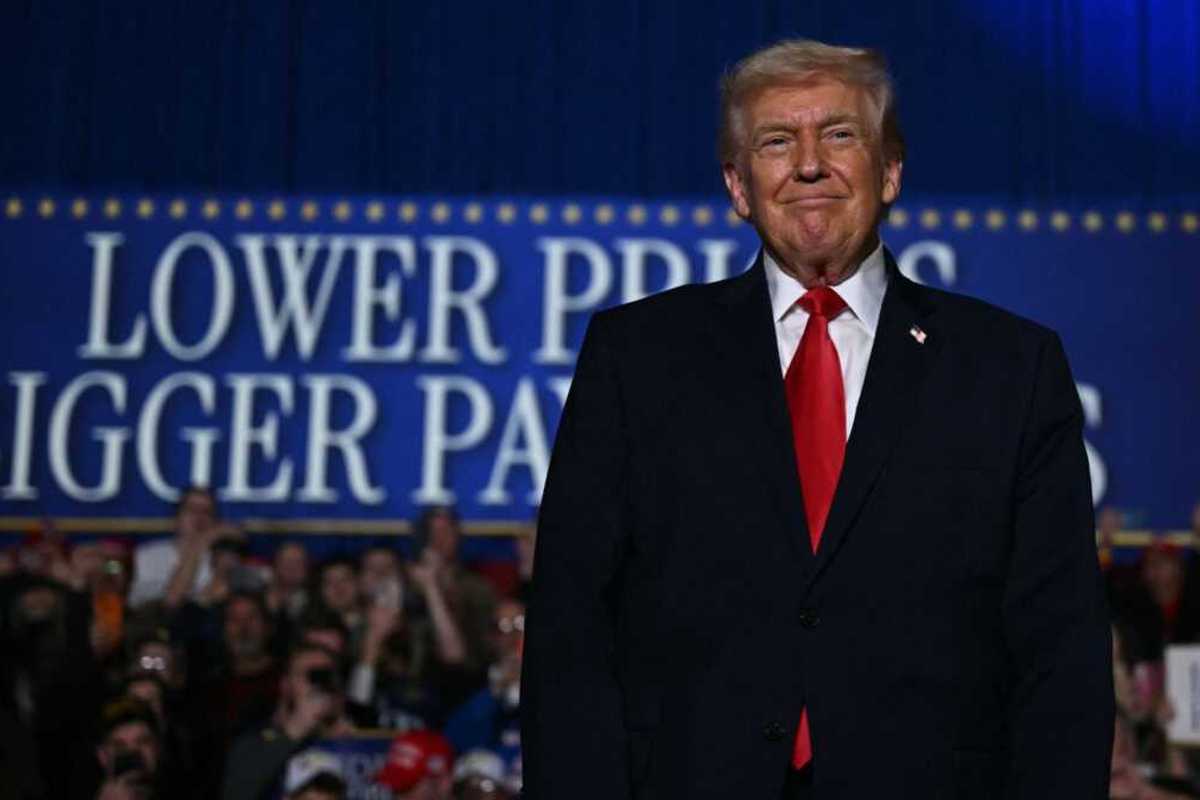




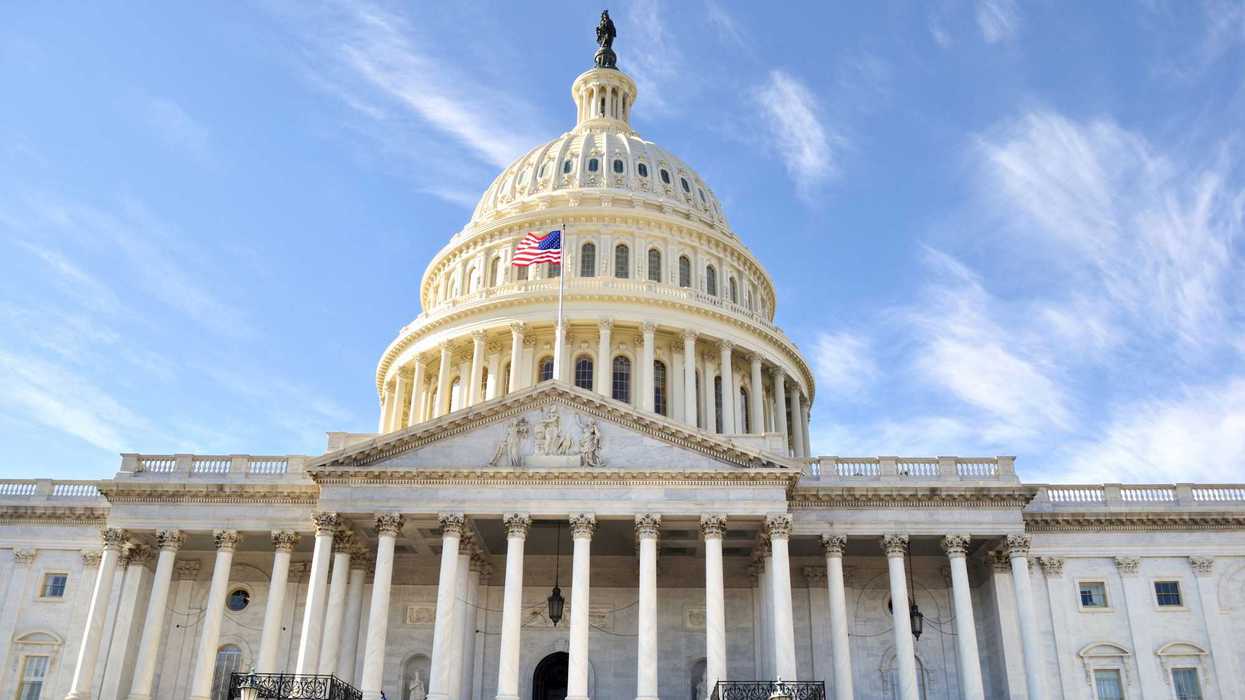
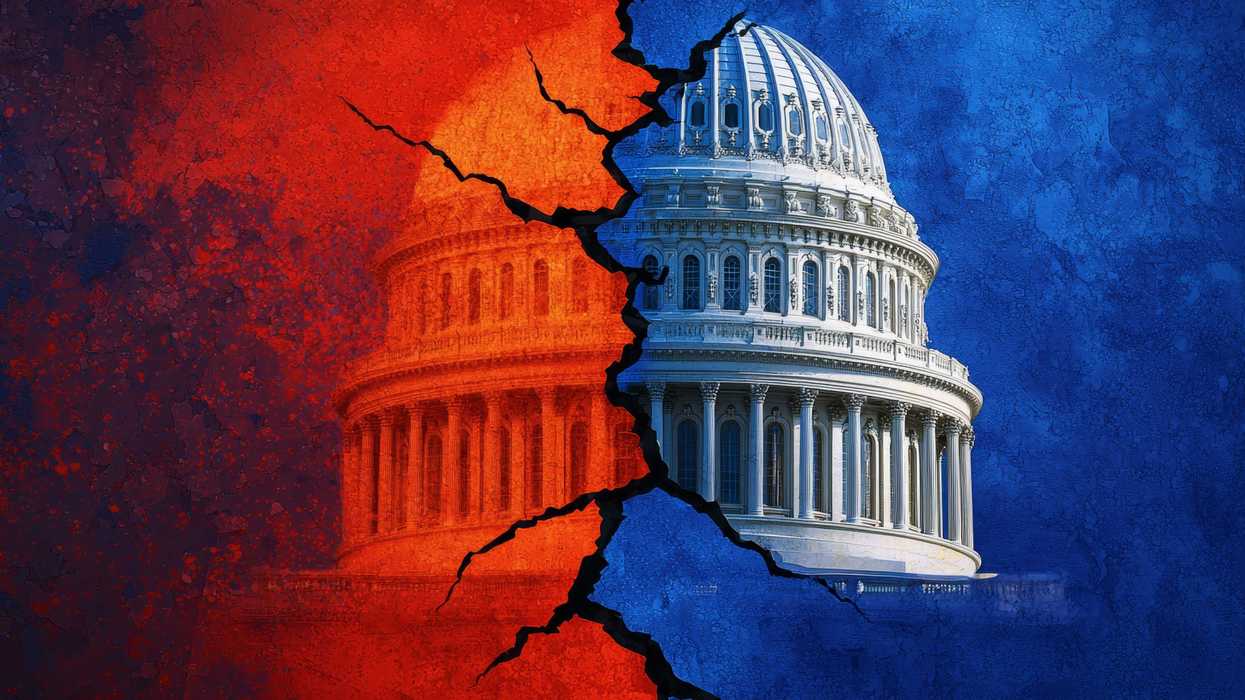






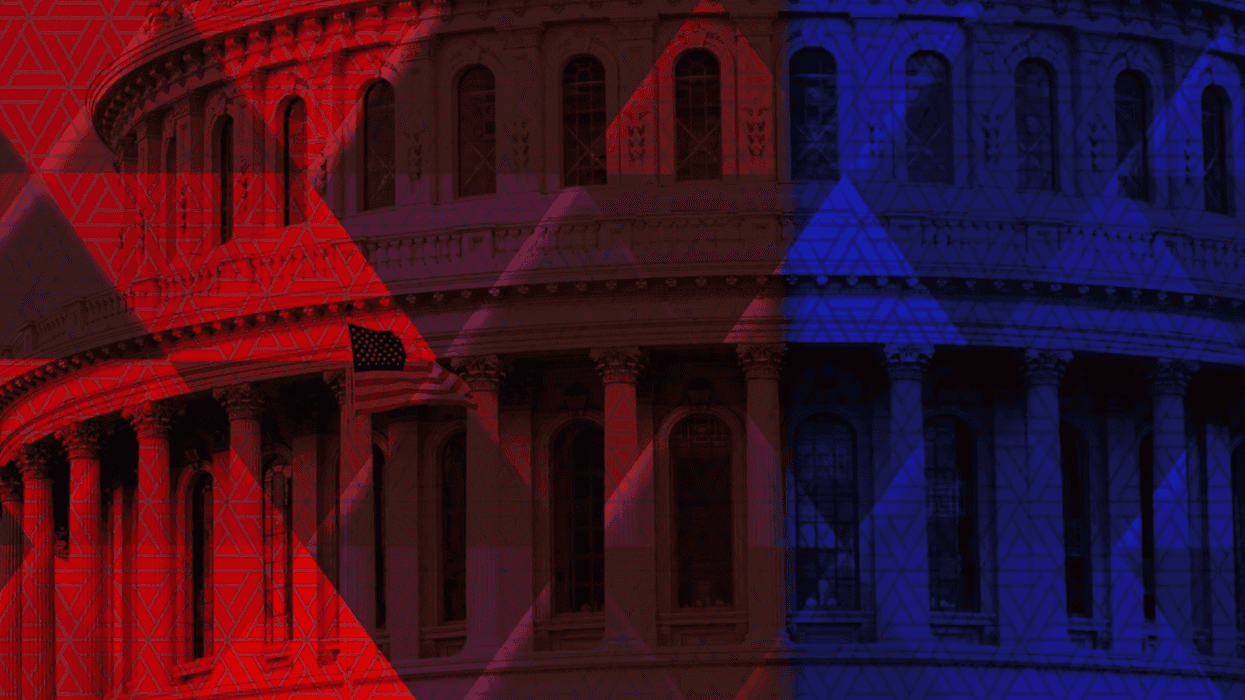
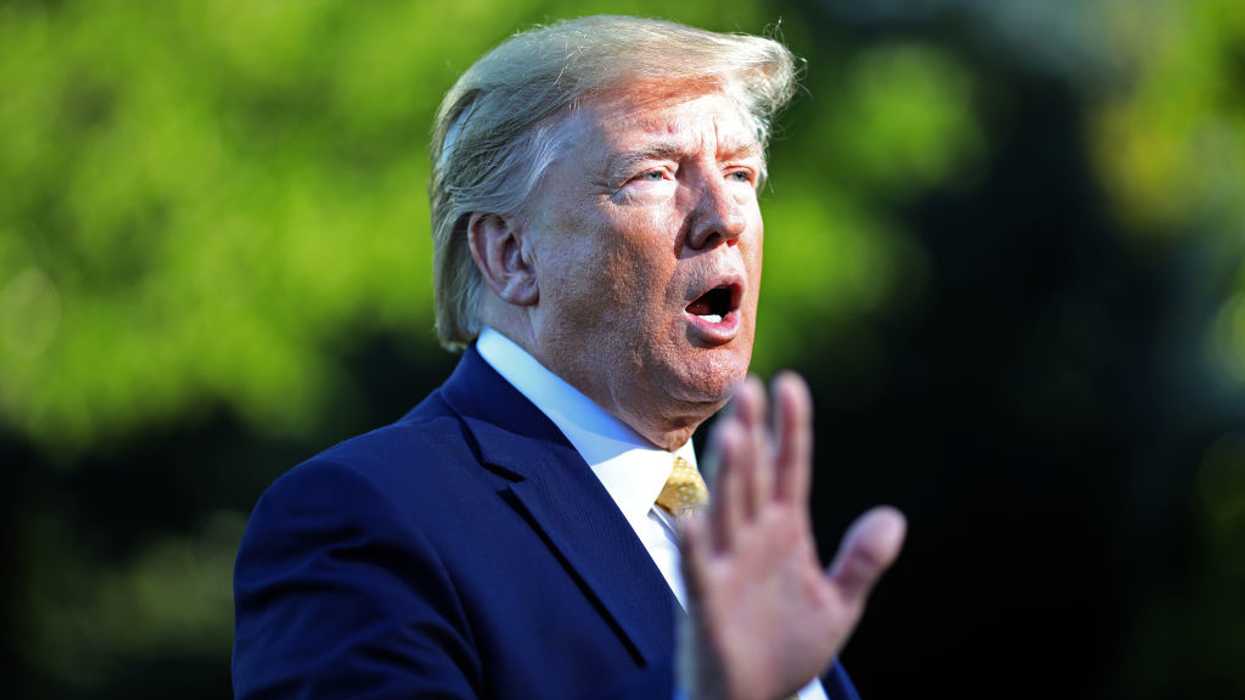
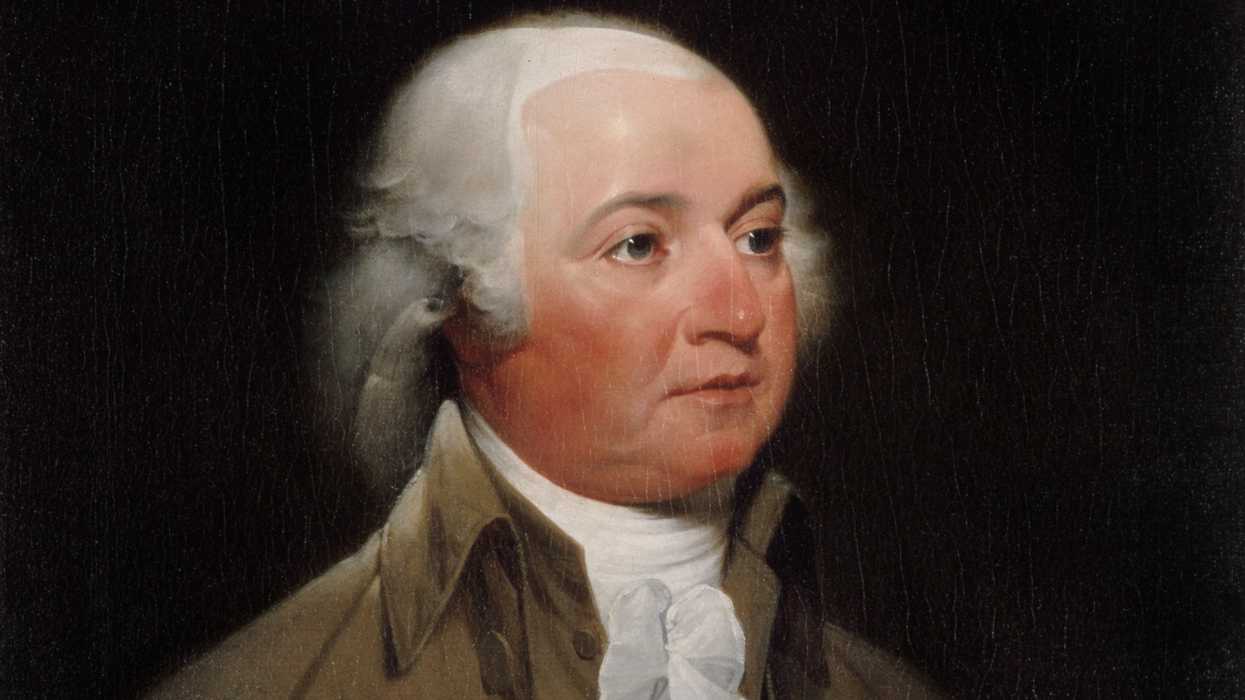
Eric Trump, the newly appointed ALT5 board director of World Liberty Financial, walks outside of the NASDAQ in Times Square as they mark the $1.5- billion partnership between World Liberty Financial and ALT5 Sigma with the ringing of the NASDAQ opening bell, on Aug. 13, 2025, in New York City.
Why does the Trump family always get a pass?
Deputy Attorney General Todd Blanche joined ABC’s “This Week” on Sunday to defend or explain a lot of controversies for the Trump administration: the Epstein files release, the events in Minneapolis, etc. He was also asked about possible conflicts of interest between President Trump’s family business and his job. Specifically, Blanche was asked about a very sketchy deal Trump’s son Eric signed with the UAE’s national security adviser, Sheikh Tahnoon.
Shortly before Trump was inaugurated in early 2025, Tahnoon invested $500 million in the Trump-owned World Liberty, a then newly launched cryptocurrency outfit. A few months later, UAE was granted permission to purchase sensitive American AI chips. According to the Wall Street Journal, which broke the story, “the deal marks something unprecedented in American politics: a foreign government official taking a major ownership stake in an incoming U.S. president’s company.”
“How do you respond to those who say this is a serious conflict of interest?” ABC host George Stephanopoulos asked.
“I love it when these papers talk about something being unprecedented or never happening before,” Blanche replied, “as if the Biden family and the Biden administration didn’t do exactly the same thing, and they were just in office.”
Blanche went on to boast about how the president is utterly transparent regarding his questionable business practices: “I don’t have a comment on it beyond Trump has been completely transparent when his family travels for business reasons. They don’t do so in secret. We don’t learn about it when we find a laptop a few years later. We learn about it when it’s happening.”
Sadly, Stephanopoulos didn’t offer the obvious response, which may have gone something like this: “OK, but the president and countless leading Republicans insisted that President Biden was the head of what they dubbed ‘the Biden Crime family’ and insisted his business dealings were corrupt, and indeed that his corruption merited impeachment. So how is being ‘transparent’ about similar corruption a defense?”
Now, I should be clear that I do think the Biden family’s business dealings were corrupt, whether or not laws were broken. Others disagree. I also think Trump’s business dealings appear to be worse in many ways than even what Biden was alleged to have done. But none of that is relevant. The standard set by Trump and Republicans is the relevant political standard, and by the deputy attorney general’s own account, the Trump administration is doing “exactly the same thing,” just more openly.
Since when is being more transparent about wrongdoing a defense? Try telling a cop or judge, “Yes, I robbed that bank. I’ve been completely transparent about that. So, what’s the big deal?”
This is just a small example of the broader dysfunction in the way we talk about politics.
Americans have a special hatred for hypocrisy. I think it goes back to the founding era. As Alexis de Tocqueville observed in “Democracy In America,” the old world had a different way of dealing with the moral shortcomings of leaders. Rank had its privileges. Nobles, never mind kings, were entitled to behave in ways that were forbidden to the little people.
In America, titles of nobility were banned in the Constitution and in our democratic culture. In a society built on notions of equality (the obvious exceptions of Black people, women, Native Americans notwithstanding) no one has access to special carve-outs or exemptions as to what is right and wrong. Claiming them, particularly in secret, feels like a betrayal against the whole idea of equality.
The problem in the modern era is that elites — of all ideological stripes — have violated that bargain. The result isn’t that we’ve abandoned any notion of right and wrong. Instead, by elevating hypocrisy to the greatest of sins, we end up weaponizing the principles, using them as a cudgel against the other side but not against our own.
Pick an issue: violent rhetoric by politicians, sexual misconduct, corruption and so on. With every revelation, almost immediately the debate becomes a riot of whataboutism. Team A says that Team B has no right to criticize because they did the same thing. Team B points out that Team A has switched positions. Everyone has a point. And everyone is missing the point.
Sure, hypocrisy is a moral failing, and partisan inconsistency is an intellectual one. But neither changes the objective facts. This is something you’re supposed to learn as a child: It doesn’t matter what everyone else is doing or saying, wrong is wrong. It’s also something lawyers like Mr. Blanche are supposed to know. Telling a judge that the hypocrisy of the prosecutor — or your client’s transparency — means your client did nothing wrong would earn you nothing but a laugh.
Jonah Goldberg is editor-in-chief of The Dispatch and the host of The Remnant podcast. His Twitter handle is @JonahDispatch.